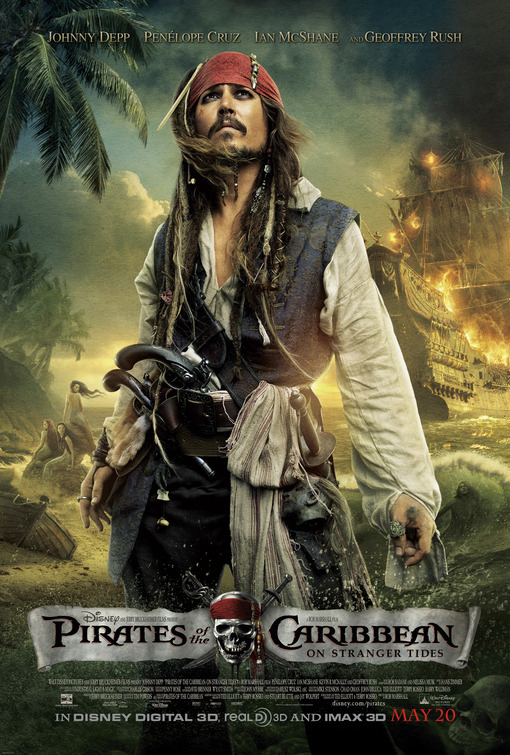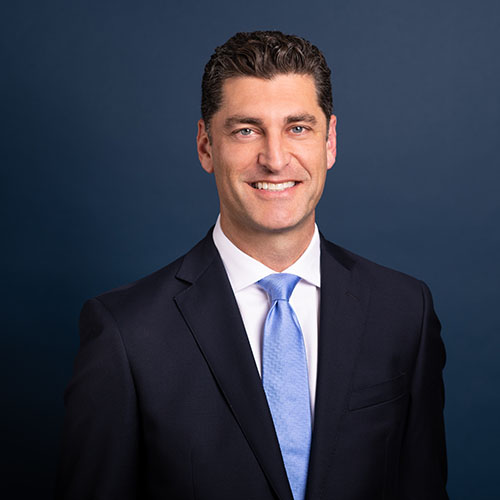“Given the recent pendulum swing in copyright cases, screenwriters and studios can now expect to resolve their disputes in a new format: trial by jury.”
Disclosure: Patrick Arenz served as lead trial counsel for the plaintiffs in this case.
In 2017, screenwriters Lee Alfred and Ezequiel Martinez Jr. embarked on what would be a five-year journey for their copyright infringement claim against Walt Disney Pictures over the Pirates of the Caribbean franchise. Now, one year after it resolved, their legacy lives on through a new era of copyright litigation in Hollywood. Courts continue to rely on the Ninth Circuit’s decision in the Pirates case to allow screenwriters and other artists to proceed past the pleading stage. With that pendulum swing, litigants in copyright cases over Hollywood films will face a range of undeveloped issues. This article provides a brief recap of the impact from the Pirates case and identifies several open issues that litigants are likely to address in future cases as a result.
The Curse is Lifted
Most copyright cases should proceed past the pleading stage and into discovery. The elements for a copyright claim are straightforward: (1) ownership of a copyright, and (2) copying. To prove copying, a plaintiff need only show the infringer’s access to the copyrighted work and substantial similarity in the copyrighted and infringing works. Whether two works are substantially similar focuses on original expressions in the copyrighted work. And the test for originality is a famously low bar as well as a quintessential fact issue. Like other forms of intellectual property, thus, disputes over originality (sometimes called protectability) are fact-intensive issues and generally ill-suited for courts to decide, let alone on the pleadings.
But courts had seemingly carved out an exception for copyright cases against Hollywood studios. Based on Hollywood’s geographic footprint, the Ninth Circuit is most responsible for developing precedent in entertainment law cases. One Ninth Circuit judge even notoriously referred to the court as “the Court of Appeals for the Hollywood Circuit.” And following Twombly, that court affirmed various dismissals of copyright cases against studios at the motion to dismiss stage. In these cases, the court often made merits-based decisions that expressions were not original or protectible and looked at those expressions in isolation rather than the overall selection and arrangement of those expressions in the copyrighted work. This trend led some to perceive favoritism for Hollywood studios.
Fortunately for screenwriters and other creative artists, the court has signaled that it has reversed course. Among a trio of cases from 2020, the Pirates case exemplifies this sea change. There, the district court first dismissed the screenwriters’ complaint, having found the many alleged similarities “generic” in isolation. The Ninth Circuit reversed and remanded because the “selection and arrangement” of the similarities between the two works was more than de minimis. The Ninth Circuit also explained that arguments over what was protectible in the screenplay was improper for the court to decide on the pleadings, especially because expert testimony would aid the determination. (Alfred v. Walt Disney Pictures, 821 Fed. Appx. 727, 729 (9th Cir. 2020).) District courts in the Central District of California—the epicenter for copyright cases against the Hollywood studios—have routinely relied on this decision to deny motions to dismiss in copyright cases that have followed. Parties thus can now expect to litigate these cases in far more detail.
Expect Epic Battles over Originality
Expert witnesses will play a crucial role—both substantively and procedurally—in copyright cases going forward. As to substance, copyright infringement revolves around the similarity between “original” or “protectible” elements in the plaintiff’s and infringing works. The question of originality also “must be established by proof.” Put differently, calling something generic (or scènes à faire ), as studios often do in defense, is much different than proving it. And as the Ninth Circuit emphasized in the Pirates case, the “qualitative importance” for the selection and arrangement of elements in both works, not just individual elements in isolation, is important for expert witnesses to address too.
Expert witnesses in copyright cases will take on key roles. While each case may vary on its own facts, a copyright owner will likely want to detail the film genre’s history to (1) discuss foundational works in the genre; (2) describe how the genre developed; (3) show that the selection and arrangement of key elements in the copyrighted work had never been done before; and (4) explain why that combination was important to the success and advancement of the genre through the infringing work, among other topics. The defendant will invariably respond with a competing expert opinion of its own. So much like patent cases and other IP litigation, copyright infringement will turn on these battles of experts.
The Pirates case also answers the procedural question of who resolves disagreements among competing expert witnesses. On remand, Disney moved for summary judgment that the Pirates of the Caribbean film was not substantially similar to protectible elements in the plaintiff screenwriters’ work. Applying established summary judgment principles, the district court denied Disney’s motion “because the parties’ expert opinions create a genuine issue of disputed fact regarding whether the works are substantially similar.” (Alfred v. Walt Disney Pictures, No. 18-8074, 2021 WL 6882322, at *4 (C.D. Cal. Dec. 16, 2021).) The district court emphasized this conclusion when it denied Disney’s motion to certify this holding to the Ninth Circuit, explaining that no substantial ground for disagreement over this holding existed. To the contrary, district courts do not resolve the “battle of experts” in any area of law. Expert witnesses will remain critical for copyright litigations going forward.
‘Not all Treasure is Silver and Gold, Mate’
Captain Jack Sparrow had it right when it comes to copyright litigation: damages are measured in dollars. But case law on copyright damages trails more developed precedent in patent cases. Now that more copyright cases will progress past Rule 12, litigants and courts will need to confront and develop important issues over damages. Here are several examples.
The Copyright Act allows copyright owners to recover the infringer’s profits from the infringing work. Under a burden-shifting approach, the copyright owner has the burden to prove overall revenue, while the infringer bears the burden to prove apportionment of the profits not the result of infringement. But case law is sparse, if existent, about how that apportionment is determined. Yet apportionment is not a new concept for IP damages. Patent litigants have hotly contested apportionment disputes for over a decade now. Apportionment strategies include conjoint surveys, regression analyses, among other sophisticated econometric techniques. Future cases will determine whether these methodologies are reliable in copyright cases. Either way, the stakes are high: if the infringer fails to prove apportionment, then the copyright owner is due all profits from the infringing work.
Another methodology for determining damages is a hypothetical negotiation. The hypothetical negotiation is well known in patent and IP disputes, including copyright matters. A key dispute for future cases will be over the “Book of Wisdom.” The Book of Wisdom is an accepted doctrine in patent cases that allows the jury to weigh and consider evidence about the success of the infringing work that was not known on the date of the hypothetical negotiation. The Federal Circuit has long endorsed the Book of Wisdom as an important tool to ensure that the true value of the invention is accounted for. No published decisions in the Ninth Circuit address the Book of Wisdom in copyright cases, while one unpublished decision suggested that it does not apply. Future cases will define the contours for the hypothetical negotiation.
Finally, future cases will define the reach of indirect profits that copyright infringers may obtain. Together with profits from the infringing work, copyright owners may also receive profits from non-infringing works that share a causal nexus to the infringing work. Here again, the Pirates case provides an important guidepost. The screenwriters sought direct profits from the first Pirates of the Caribbean film, as the infringing work, and then pursued indirect profits for the sequel films. The court rejected Disney’s efforts to refuse discovery into the financials for the sequel films because “the sequels are an extension of and borrow elements from the original movie. The Court finds that Plaintiffs have established a sufficient causal nexus to support their claim for financial information regarding the sequels.” (Alfred v. Walt Disney Pictures, No. 18-8074, Dkt. 243 at 5 (C.D. Cal. May 13, 2022).) In an economy where studios monetize popular films through sequels, toys, merchandise, video games, and musicals, among other vehicles, the scope of indirect profits will be an important damages consideration for future cases to develop.
A New Parley – Trial by Jury
In pirate lore, parley was a conference or negotiation to resolve a dispute between a rival pirate and a ship captain. Given the recent pendulum swing in copyright cases, screenwriters and studios can now expect to resolve their disputes in a new format: trial by jury. For years, practitioners and commentators have observed the dearth of jury trials against studio defendants in copyright cases. This pattern is destined to change soon. With cases more likely to surpass Rule 12, expert battles over originality, and significant dollars at stake, juries will soon resolve many more of these high stakes matters. That change, perhaps most significant of all, will thus place a premium for true, experienced, and exceptional trial lawyers—not just litigators—for copyright infringement cases against Hollywood studios going forward.

![[IPWatchdog Logo]](https://ipwatchdog.com/wp-content/themes/IPWatchdog%20-%202023/assets/images/temp/logo-small@2x.png)



![[Advertisement]](https://ipwatchdog.com/wp-content/uploads/2024/04/UnitedLex-May-2-2024-sidebar-700x500-1.jpg)
![[Advertisement]](https://ipwatchdog.com/wp-content/uploads/2024/04/Artificial-Intelligence-2024-REPLAY-sidebar-700x500-corrected.jpg)
![[Advertisement]](https://ipwatchdog.com/wp-content/uploads/2024/04/Patent-Litigation-Masters-2024-sidebar-700x500-1.jpg)

![[Advertisement]](https://ipwatchdog.com/wp-content/uploads/2021/12/WEBINAR-336-x-280-px.png)
![[Advertisement]](https://ipwatchdog.com/wp-content/uploads/2021/12/2021-Patent-Practice-on-Demand-recorded-Feb-2021-336-x-280.jpg)
![[Advertisement]](https://ipwatchdog.com/wp-content/uploads/2021/12/Ad-4-The-Invent-Patent-System™.png)






Join the Discussion
One comment so far.
WIRF DANIELS
December 9, 2023 03:23 amAs someone going into an appeal on a SJM on a high profile IP litigation, this article gives me hope. I plan to be one of the first Plaintiffs to win an IP Jury Trials in Hollywood in a very long time #Fight4WIRF